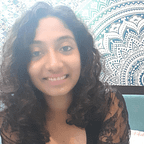5 days of Workation in Prague
After a week in Berlin, knowing the history of Berlin Wall, it was time to travel to the Eastern Europe. Prague or as the locals calls it Praha is the capital of Czech Republic (it became capital of Czechoslovakia in 1918). This marks my first time visit to a East European country. The city is over crowded by tourists and as expected, it comes with lot of tourist scams. First, even though it is a part of European Union, it does not come under Eurozone. Hence, the currency is Czech Koruna and places where you purchase anything will cost you some extra money due to conversion from euro to koruna. ATMs are also not safe, because they charge commission and incorrect conversion rates. We withdrew as much money as we wanted to pay (tourist tax) at the hotel and rest, we used credit cards.
We stayed near the iconic spot of Prague, Charles Bridge. Every other spots were in walking distance. This was a proper workation I did in a long time, I used to work mainly in the room till 12 and head for lunch in a cozy place nearby for some delicious lunch. Then walk around the city, go to a coffee shop to work again and finally return to room after enjoying the nightlife of Praha. My friend took me to a English bookstore where I got the book ‘Animal Farm’ by George Orwell. Unlike other cities, we didn’t go to any places where we had to buy ticket like museums, castles etc. Because, most of them were again just a tourist scams again and were not worth visiting. In the area near astronomical clock, plenty of food stalls are arranged who sell variety of dishes. The most common one you can see is Trdelník. It is a kind of ice-cream but the cone is made by a dough wrapped around the stick and baked. Some good Prague food to try can be goulash in a bread bowl, svickova.
In 1992, when Czechoslovakia was dissolved it gave birth to two independent countries — Czech Republic (official language — Czech) and Slovakia (official language — Slovak). Czech (informally Czechia) has provinces of Bohemia, Moravia and Silesia. Prague has long been Bohemia’s political, cultural, and economic center. This is very visible in every nook and corner shops that promotes Bohemian culture. If Moravians are proud of their wine, Bohemians for their Pilsner Beer that originated in the town of Pilsen. The Bohemian kings along with German kings of the Holy Roman Empire brought German colonization into the country, initially for the good but later when Germans became dominating it was not good for Czechs. Obviously, they fought but it was an insolvable conflict. By the end of WW1, after the fall of Austro-Hungarian Empire, Czechs and Slovaks came together to outcast Germans. But it had to suffer under German invasion again for six years when Hitler rose to power. In Munich agreement of 1938, Italy, France, England gave Czech (marking first country under Nazi) to Hitler but later Nazi went on occupying Poland leading to WW2. After WW2, Czechoslovakia became Soviet Bloc during Cold War and finally went on becoming independent after Berlin Wall fall in 1989. The present day Czech is surrounded by Slovakia, Austria, Poland and Germany.
Coming back to the present day, the Jazz and in general music culture is very much appreciated in Prague as it can be seen very evidently in pubs and bars, hosting live music almost everyday. The city also celebrates spring music festival every year. Unfortunately, Kafka house was permanently close. Franz Kafka was a novelist and write from Prague whose work are known for the themes like existentialism and alienation. I have his books in my wish list and hope to read them soon. Café Louvre of 1902 is worth visiting as Kafka visited it often and Einstein too. The Cafe showcases their work very elegantly.
As I read, Charles IV was a Bohemian King and a Holy Roman Emperor in 1300s and had Prague as his capital. He founded Charles university and Charles Bridge was also constructed during his times. When I was learning about Prague’s history, I got to know about Prague Spring and Velvet Revolution of 1989 which was against Soviets and finally made Czechoslovakia, an independent country free from communism. I suggest to read about these two events. I was sad to not find any relevant museums based on these two events.
Nevertheless, a workation in Prague was very fruitful and the city has got some really stunning views and musical culture that one should not miss. From here, we traveled to a East German city — Dresden. In the next blog, let us meet in Dresden.
